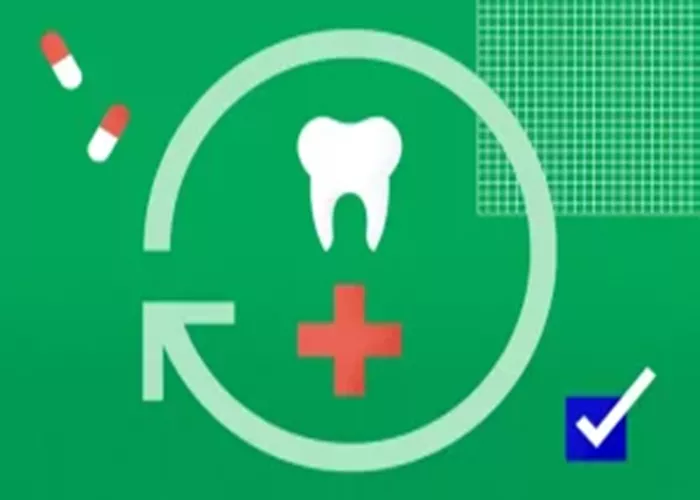Gum tissue plays a crucial role in oral health. Its primary function is to protect the underlying structures of the teeth and jawbone. However, gum tissue can be damaged due to various reasons, including periodontal disease, injury, or surgical procedures. This essay explores whether gum tissue can grow back after surgery, the factors influencing healing, and methods to promote recovery.
Understanding Gum Tissue
Gum tissue, or gingiva, is the soft tissue that surrounds and supports the teeth. It is composed of epithelial cells and connective tissue, which provide a protective barrier against bacteria and other harmful substances. Healthy gums are essential for overall dental health, as they help anchor teeth in place and prevent tooth loss.
Reasons for Gum Surgery
Gum surgery may be necessary for several reasons:
Periodontal Disease: This is a serious gum infection that damages the soft tissue and destroys the bone that supports teeth. Surgery may be required to restore health to the gums and underlying structures.
Gum Recession: This condition occurs when the gum tissue pulls away from the teeth, exposing the roots. Surgical intervention can help restore the gum line.
Gingivectomy: This procedure involves the removal of diseased gum tissue to reduce inflammation and promote healing.
Crown Lengthening: This surgery is performed to expose more of a tooth’s structure, often for restorative purposes.
The Healing Process of Gum Tissue
After gum surgery, the healing process begins immediately. The body initiates a series of biological responses to repair the damaged tissue. Understanding this process is essential to comprehend whether gum tissue can grow back after surgery.
Initial Healing Phase
The initial healing phase occurs within the first few days post-surgery. During this time, the body forms a blood clot at the surgical site. This clot serves as a protective barrier and a foundation for new tissue growth. The inflammation that follows is a natural part of the healing process, as the body sends white blood cells to the area to fight infection.
Tissue Regeneration
After the initial healing phase, the body begins to regenerate gum tissue. Fibroblasts, a type of cell found in connective tissue, play a significant role in this process. They produce collagen, which is essential for rebuilding the gum tissue. Over the next few weeks, the gum tissue gradually thickens and reattaches to the teeth.
Complete Healing
Complete healing can take several weeks to months, depending on the extent of the surgery and the individual’s overall health. Factors such as age, nutrition, and oral hygiene can significantly influence the healing time.
Factors Affecting Gum Tissue Regrowth
While gum tissue can grow back after surgery, several factors can influence the success of this process.
1. Type of Surgery
The type of gum surgery performed can affect how well the tissue regenerates. For instance, procedures that involve significant removal of gum tissue may result in slower regrowth compared to less invasive techniques.
2. Oral Hygiene
Maintaining good oral hygiene is critical for healing. Bacteria can hinder the healing process and lead to complications.
Patients are often advised to follow specific oral care instructions post-surgery, including gentle brushing and avoiding certain foods.
3. Nutrition
A balanced diet rich in vitamins and minerals supports the body’s healing processes. Nutrients like vitamin C, vitamin D, and calcium are particularly important for gum health. A deficiency in these nutrients can impair tissue regeneration.
4. Smoking
Smoking has been shown to negatively impact the healing of gum tissue. It reduces blood flow to the gums and increases the risk of infection. Patients are encouraged to quit smoking before and after surgery to enhance recovery.
5. Overall Health
Chronic health conditions such as diabetes can affect healing. Patients with uncontrolled diabetes may experience slower healing times and a higher risk of complications. Managing underlying health issues is crucial for optimal recovery.
Promoting Gum Tissue Regrowth
To promote the regrowth of gum tissue after surgery, patients can adopt several strategies:
1. Follow Post-Operative Instructions
It is essential to follow the dentist’s or periodontist’s post-operative care instructions. This may include guidelines on diet, oral hygiene practices, and medications.
2. Maintain Good Oral Hygiene
Keeping the mouth clean is vital for preventing infection. Patients should brush gently around the surgical site and may be advised to use an antimicrobial mouthwash to reduce bacteria.
3. Eat a Nutrient-Rich Diet
Consuming a diet rich in vitamins and minerals can support healing. Foods high in vitamin C, such as citrus fruits, and those rich in calcium, like dairy products, should be included.
4. Stay Hydrated
Drinking plenty of water helps maintain moisture in the mouth and supports overall health. Hydration is crucial for optimal tissue regeneration.
5. Avoid Tobacco Products
Quitting smoking and avoiding tobacco products can significantly improve healing outcomes. Patients are encouraged to seek support if needed to quit smoking.
Conclusion
In conclusion, gum tissue can grow back after surgery, but the extent and speed of regrowth depend on various factors.
Understanding the healing process and the factors that influence it can help patients take the necessary steps to promote recovery. By following post-operative care instructions, maintaining good oral hygiene, and adopting a healthy lifestyle, individuals can support the regeneration of gum tissue and improve their overall oral health. Regular dental check-ups and consultations with dental professionals are essential for monitoring healing and addressing any concerns that may arise during the recovery process.
Related topics:

